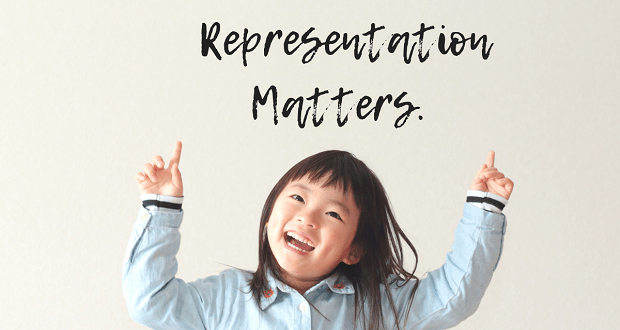
At some point during my childhood, I proudly owned a t-shirt with a glittery red, white, and blue “American Girl” on its front. You know, the types of t-shirts usually sold during Fourth of July sales at Old Navy. I remember how much I adored this shirt because I also remember how affected I was by the reaction of one particularly outspoken classmate when she saw it. Let’s call her Jessica.
“Why are you wearing that shirt? You’re not American…” Jessica sneered. (In my memory, she definitively sneered, perhaps even snarled, but I also may have dramatized that detail over the years.)
In that moment, in the middle of that black asphalt during recess, a small part of my world came crumbling down. It may have been the first time I was confronted about my identity as an Asian-American. If I wasn’t an American girl growing up in America, who was I? I grew up in a community without many other Asians, so this was the first of many instances where I’d be reminded that I was an “other” – not quite like the rest, as Jessica and her friends went out of their way to remind me.
I would grapple with this for years to come. How could I feel so “American” on one hand while rarely seeing someone that looked like me or went through similarly culturally-split experiences like me in the shows, movies, and books that were supposed to expose me to the world around me?
I didn’t become quite so existential as the 7-year-old donning an Old Navy glitter shirt or for a while after that, because I didn’t have the words to understand what I was feeling. It wasn’t until I was exposed to the stories of others with shared experiences through the internet and, eventually, college courses, that I began drawing parallels within my own life and grew stronger in how I defined my identity.
In other words, it was through representation – authentic representation. In American media, Asians are typically characterized as stereotypically nerdy, one-dimensional side-kicks (if you were to even try to boil down the vast array of ethnic groups that can be categorized into the behemoth that is the Asian race). Asian women are often fetishized as “exotic” sexual objects while Asian men are conversely stripped of their sexuality altogether. Basically, Asians haven’t had the coolest rep. in Hollywood.
Basically, Asians haven’t had the coolest rep. in Hollywood. This is why Crazy Rich Asians mattered so much to so many. Share on XThis is why Crazy Rich Asians mattered so much to so many. It wasn’t a white-washed film that played into stereotypical Asian tropes. First and foremost, it was a well-made, light-hearted romantic comedy that also starred an all-Asian cast (the first in 25 years!). I went into the film with a lot of hesitation, as if I would be personally embarrassed if this flopped, but once the movie started, before I could even remember to critique it, I got swept up in the pure fun of it all. It would be outlandish to say that this film represents a typical Asian-American experience, and it doesn’t claim to. What it does do, is show that Asian-centric stories can and will continue to succeed in mainstream media, if given the platform.
What made me most emotional was that I didn’t even realize how much I had been yearning for this type of representation until the credits rolled and I found that a deeply buried void was filled. I’ve been following the slow-growing diversity in Hollywood recently, and, personally, I’m excited for what’s next.
What made me most emotional was that I didn’t even realize how much I had been yearning for this type of representation until the credits rolled and I found that a deeply buried void was filled. #RepresentationMatters Share on X

















